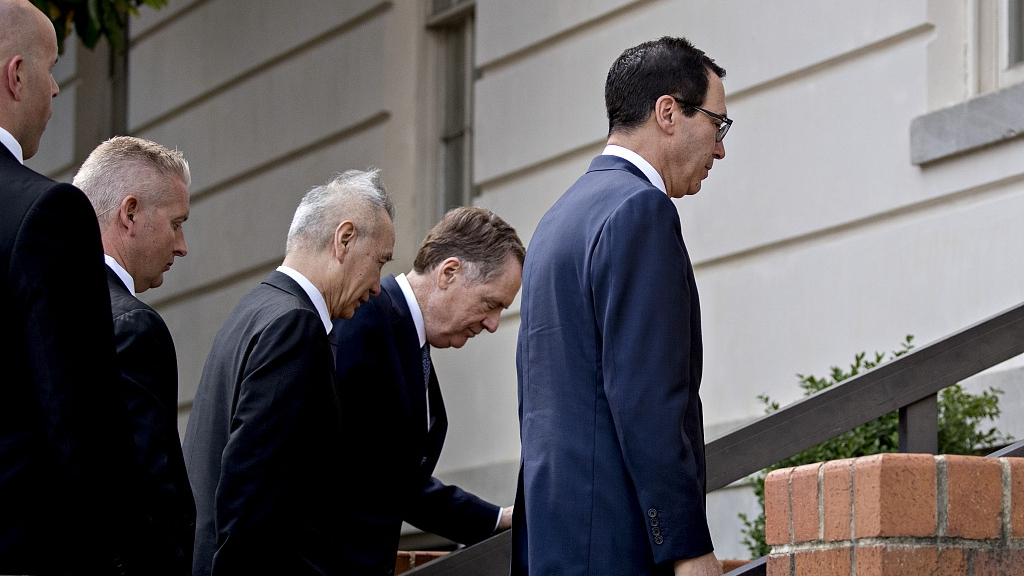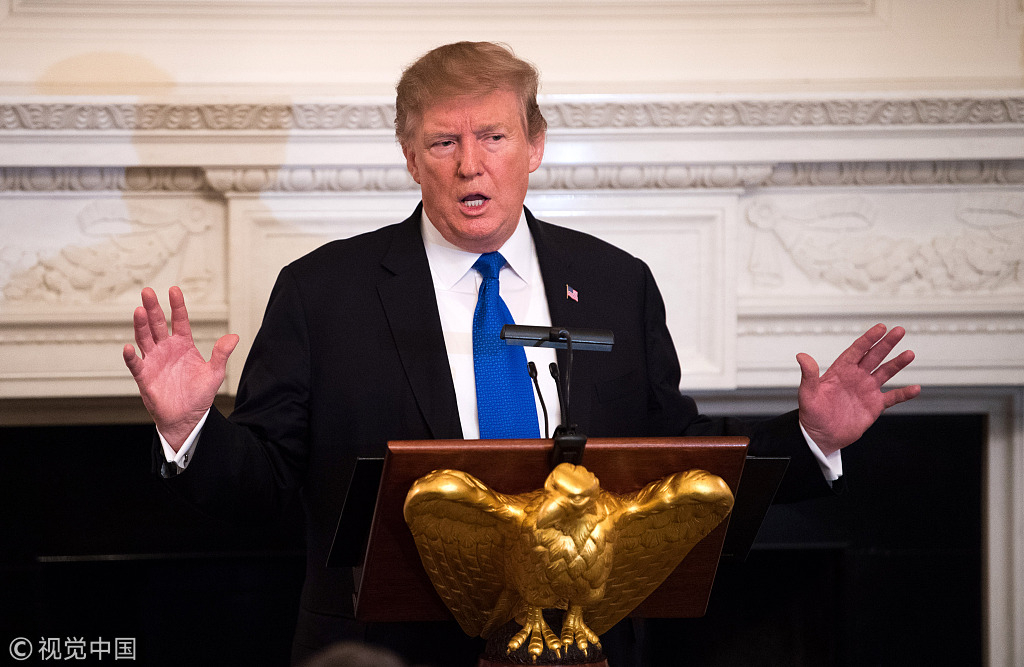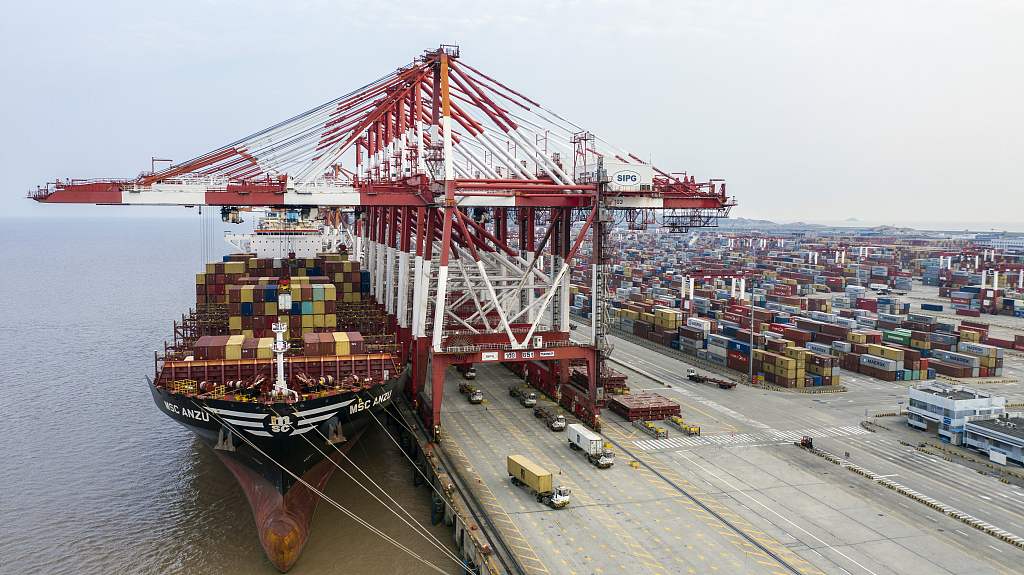
Opinion
09:06, 12-May-2019
Negotiations should be equal and mutually beneficial
Updated
09:55, 12-May-2019

Editor's note: The article was translated and edited from an editorial piece originally published on the Taoranbiji official WeChat account.
It is said that after the talks, Vice Premier Liu He took part in a group interview with the Chinese media and indicated four aspects about the talk
First, the results achieved by both sides up to the 11th round of negotiations. Secondly, China has openly discussed three differences with the United States for the first time. Thirdly, it has clearly stated that the tariff hike will inevitably trigger China's countermeasure.
The last aspect, which is the most important one, is that it expressed China's basic attitude towards the prospect of China-U.S. relations and revealed that both sides agreed to continue to maintain communication.
Since the U.S. talked about going ahead with the tariff hike, the world has been speculating whether the China-U.S. talks have broken down.
It is not so much a breakdown as a hiccup in the negotiation process when the differences between the two sides cannot be resolved for a short time.
In fact, one of the major differences between China and the United States may lie in their different perceptions of "fairness".
In recent days, the U.S. has frequently voiced through foreign media that the reason for the twists and turns in this round of negotiations and even the re-imposition of the tariff hike is China's "failure to abide by its commitments already agreed upon" during the negotiations.
However, it is not difficult to see that this is a headline grabber created by the U.S. side to disclaim the responsibility of blocking the negotiations
The fact is that the negotiation has not been completed and no agreement has been signed.

U.S. President Donald Trump addresses a group of Governors at the White House in Washington, D.C., February 25, 2019. /VCG Photo
U.S. President Donald Trump addresses a group of Governors at the White House in Washington, D.C., February 25, 2019. /VCG Photo
Strictly speaking, any changes before the final signing should be regarded as part of the negotiation process, and the reference to "non-compliance" is actually out of the question. The United States, which is good at various negotiation tactics, should know this well.
Besides, the United States said that China did not meet the requirements of the United States, so it was "unfair". However, the United States did not mention anything about China's demands. Is it fair?
China believes that mutual respect and equality and mutual benefit are the precondition for fairness. While in the U.S. narrative, it's unfair if things don't go its way.
If the negotiation between the two countries produces a result that neither side is satisfied with but is generally acceptable, then it can be considered successful and the implementation will be easy.
If the result is an agreement that is particularly satisfactory for one party and ignores the interests and demands of the other party, then even if it is signed, it may not be enforced and the subsequent disputes abound.
Therefore, if one party only considers its own demands and thinks that it can force the other party to capitulate through extreme pressure while ignoring the fairness of the negotiation, then it is not impossible to end up with a nasty breakup.
Meanwhile, the China-U.S. economic and trade negotiations are likely to become normalized and we need to adapt to this new normal as soon as possible.
The 11th round negotiation is a typical case in point as although the negotiations are still going on here, the U.S. raised the tariff rate on 200 billion U.S. dollar worth of Chinese goods exported to the United States from 10 percent to 25 percent, and threatened to impose a 25 percent tariff on 325 billion dollar worth of Chinese goods exported to the United States in the future.

A container ship is docked next to gantry cranes as shipping containers sit stacked at the Yangshan Deepwater Port, China, May 10, 2019. /VCG Photo
A container ship is docked next to gantry cranes as shipping containers sit stacked at the Yangshan Deepwater Port, China, May 10, 2019. /VCG Photo
Negotiation is the process of finding a balance of interests through probing and understanding each other.
What needs to be realized now is that the strategy of carrot and stick is bound to create a very complicated situation, but we still have to stick to our own pace of development, promote development through reform and opening-up, push for high-quality economic development, and expand the domestic market through reform and opening-up.
We believe China and the United States can still find another way to manage their differences and find the way to take into account each other's interests. This is exactly the way China is trying to push forward and is the fundamental reason why China is trying to meet the United States halfway.
When a certain balance point is identified between China and the United States, the constant friction or collision between the two sides will gradually come to an end.
(If you want to contribute and have specific expertise, please contact us at opinions@cgtn.com)

SITEMAP
Copyright © 2018 CGTN. Beijing ICP prepared NO.16065310-3
Copyright © 2018 CGTN. Beijing ICP prepared NO.16065310-3